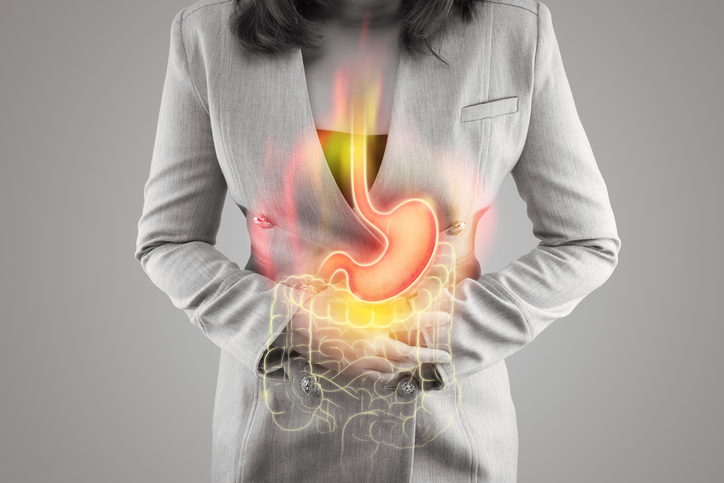Ever had a bad experience after a fun night out drinking with your co-workers? It’s possible you’re dealing with not a hangover but acid reflux. Schedule a consultation with the beat gastroenterologist los angeles for the best care and treatment.
What are the causes of acid reflux?
Several factors can contribute to the development of acid reflux, including hiatal hernia, obesity, pregnancy, smoking, alcohol consumption, certain medications, and eating habits. A hiatal hernia occurs when a portion of the stomach protrudes into the chest through a small opening in the diaphragm, which can cause acid reflux.
- Obesity and pregnancy can put pressure on the abdomen, causing the stomach’s contents to be pushed back into the esophagus.
- Smoking and alcohol consumption can weaken the lower esophageal sphincter, increasing the risk of acid reflux.
- Certain medications, such as aspirin and NSAIDs, can irritate the esophagus lining and lead to acid reflux.
- Finally, eating large meals, eating late at night, and consuming spicy or acidic foods can also increase the risk of acid reflux.
Identifying the symptoms of acid reflux
Some common symptoms of acid reflux include heartburn, chest pain, and a sour taste in the mouth. Heartburn is a burning sensation in the chest, sometimes accompanied by a sour or acidic taste in the mouth.
Other symptoms of acid reflux may include difficulty swallowing, a hoarse voice, and coughing or wheezing. Some people with acid reflux may also experience nausea or vomiting.
Diagnosing acid reflux
Gastroenterologists in Los Angeles will typically ask about a patient’s symptoms and medical history to diagnose acid reflux and perform a physical examination. The doctor may also recommend one or more of the following diagnostic tests:
- Esophageal pH monitoring: This test measures the esophagus’s pH (acid level) to determine whether acid reflux is occurring.
- Upper endoscopy: During this procedure, the doctor inserts a flexible tube with a light and camera at the end through the mouth and into the esophagus to examine the inside of the esophagus and take biopsy samples if needed.
- Barium swallow: This test involves drinking a liquid containing barium, which coats the esophagus and allows it to show up on an X-ray.
- Esophageal manometry: This test measures the pressure and muscle function in the esophagus to determine if the muscles are working correctly.
Based on the results of these tests, the doctor can diagnose acid reflux and recommend an appropriate treatment plan.
How to get rid of acid reflux?
- How to get rid of acid reflux by changing your diet and lifestyle
Diet plays a significant role in managing acid reflux. Some dietary changes that may help mitigate acid reflux include:
- Avoiding trigger foods: Some common trigger foods for acid reflux include fatty or fried foods, spicy foods, tomatoes, citrus fruits, chocolate, and caffeine.
- Eating smaller, more frequent meals: Large meals can pressure the stomach and increase the risk of acid reflux. Instead, try eating smaller, more frequent meals throughout the day.
- Avoid eating close to bedtime: Eating close to bedtime can increase the risk of acid reflux. Try to eat at least three hours before going to sleep.
- Avoid tight-fitting clothing: Tight-fitting clothing can pressure the stomach and increase the risk of acid reflux.
- Elevating the head of the bed: Keeping the head of the bed elevated can help prevent acid reflux by keeping stomach acid in the stomach.
- Avoid lying down after eating: Lying down after eating can increase the risk of acid reflux. Try to stay upright for at least three hours after eating.
Making these dietary changes, along with following your doctor’s treatment plan, can help mitigate the symptoms of acid reflux.
- How to get rid of acid reflux with medication
Several types of medications exist to treat acid reflux. The most common medicines for acid reflux are:
- Antacids: These medications neutralize stomach acid and provide rapid symptom relief.
- H2 receptor blockers: These medications reduce acid production in the stomach and provide longer-term symptom relief.
- Proton pump inhibitors (PPIs): These medications block acid production in the stomach and are usually the most effective medication for acid reflux.
- Prokinetics: These medications help strengthen the lower esophageal sphincter and improve food movement through the digestive system.
Medications for acid reflux are available over the counter or by prescription, depending on the severity of the condition. Following the dosage and usage instructions provided by your doctor or pharmacist when taking these medications is essential.
- How to get rid of acid reflux with surgery
Doctors may recommend surgery for individuals with severe or recurrent acid reflux who have not responded to other treatments.
Fundoplication is the most common type of acid reflux surgery, which involves creating a new valve at the top of the stomach to help prevent acid from flowing back into the esophagus. There are several types of fundoplication surgery, including laparoscopic fundoplication and open fundoplication.
Laparoscopic fundoplication is a minimally invasive procedure that uses small incisions and a camera to guide the surgery. Open fundoplication involves a larger incision and doctors may recommend it for individuals with more complex conditions.
Generally, the surgery is safe, but like any procedure, it carries some risks and potential complications. It is essential to discuss the risks and benefits of surgery with your doctor before deciding if it is the right treatment option for you.
Looking for The Best Gastroenterologist Los Angeles?
If you are suffering from acid reflux, schedule a consultation with the best gastroenterologist Los Angeles. Gastroenterology Institute of Southern California has ample experience offering GI patients the best care and treatment they need to recover. Call today at (310) 271-1122.


